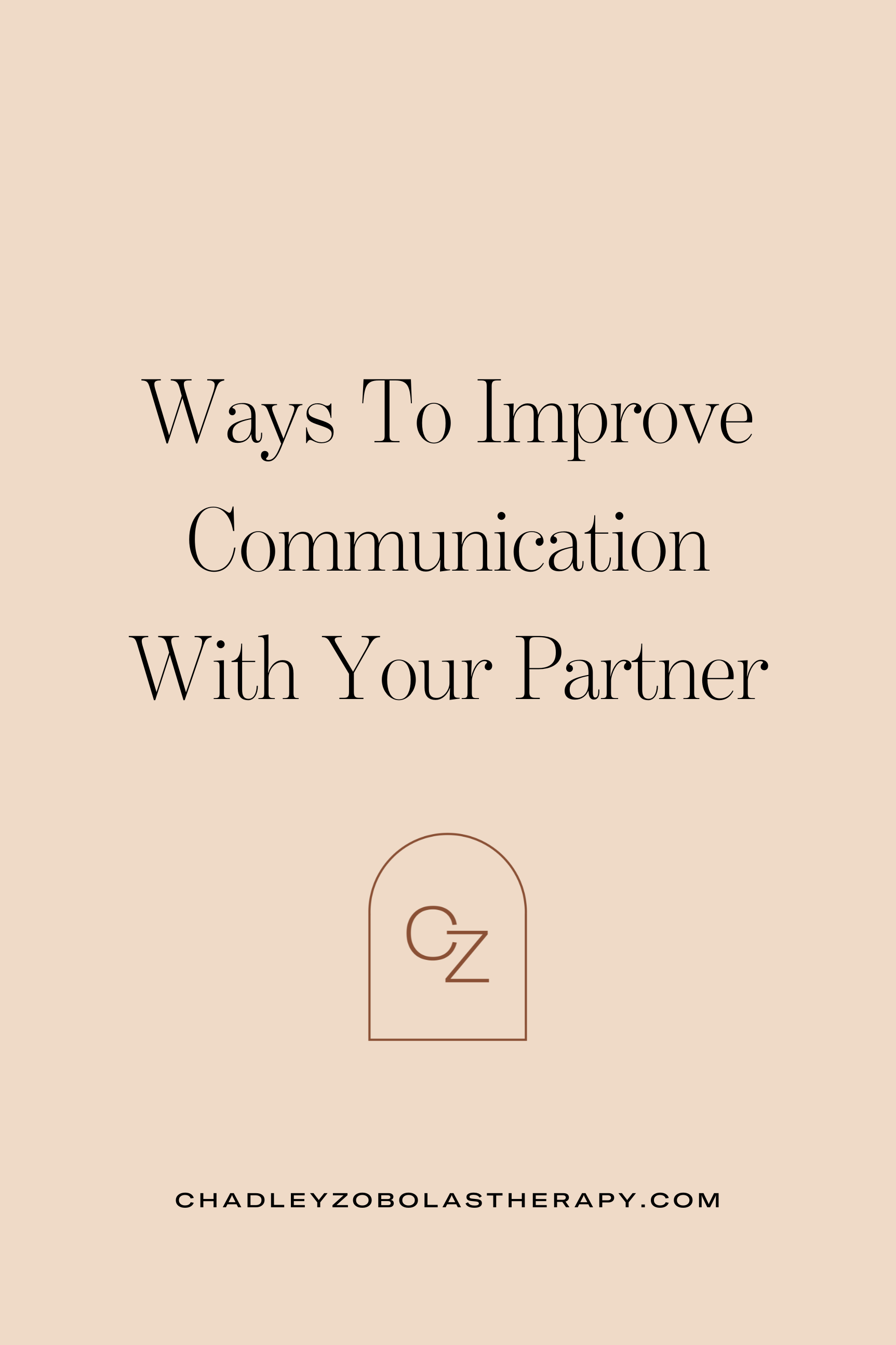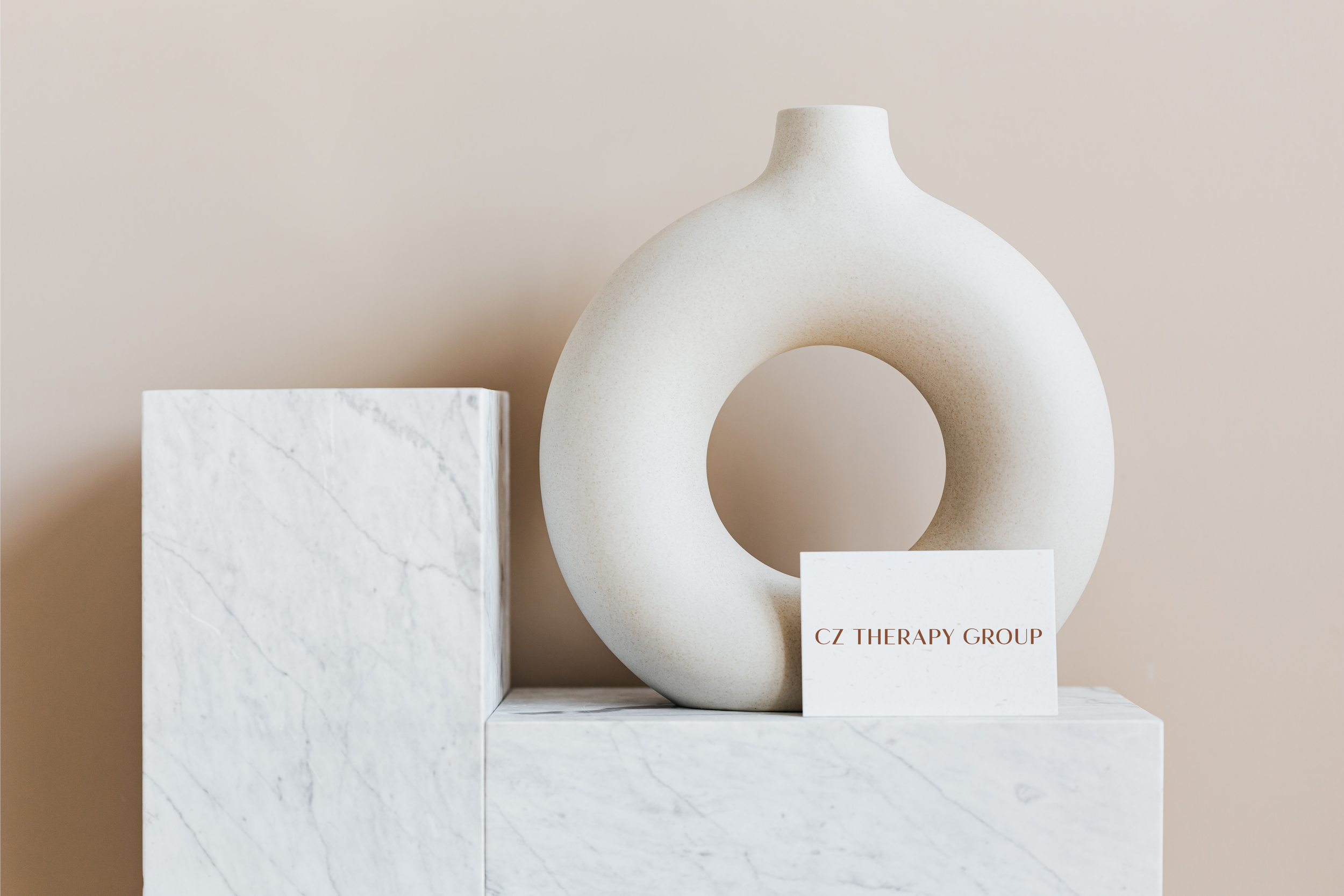Ways to Improve Communication with Your Partner: Practical Insights from a Couples Therapist in Denver, CO
Tools to Help Denver Couples Improve Their Communication and Connection with One Another
If you've stumbled upon this post because you're looking to communicate better with your partner, we’re happy you’re here and we've been there, too. As couples therapists, we've witnessed firsthand how ineffective communication can impact relationships. It's in those moments of frustration and disconnection that we recognize the crucial importance of addressing communication challenges head-on.
In this blog, we will embark on a journey together, shedding light on the transformative potential of a supportive therapeutic environment. By offering valuable insights, we aim to empower you with the tools and understanding needed to cultivate stronger, healthier connections in your relationship. Our shared hope is that these tips will foster a profound sense of being heard, valued, and authentically connected, paving the way for transformation in your relationship.
One more thing that’s important to note! Whether you identify as a heterosexual couple or an LGBTQ+ couple, we want to emphasize that the strategies and tips we are sharing are inclusive. Love knows no boundaries, and we are dedicated to empowering all relationships.
Understanding Stuck Patterns, Triggers, and What’s Underneath It All That We Might Not Initially See
In relationships, certain triggers can raise alarms in our heads that lead to emotional disconnection, breakdowns in communication, and challenges in experiencing intimacy and vulnerability. That’s why it's crucial to recognize and understand the triggers specific to each partner in order to address stuck patterns and heal relationship wounds. Something that can help us with this is looking at this through the lens of "the cycle."
In a previous blog, we have defined “the cycle” in the following way:
"The cycle takes the shape of an infinity loop, with no start and no end, and where each partner’s actions, emotions, and thoughts trigger and feed off of the other partner’s. When couples are in their cycle, it can feel incredibly painful, confusing, and even hopeless."
Learn more about this in our blog The Cycle: Why Couples Fight from an Emotion-Focused Therapy Lens
It’s Important To Acknowledge the Workings and Impact of Your Cycle
Acknowledging the inner workings and impact of your cycle is an important step towards creating healthier patterns of communication and breaking free from destructive cycles. Below is an exercise derived from Emotion-Focused Therapy (EFT) to help you understand your part of the cycle - what you do, think, and feel when you aren’t getting your needs met by your partner.
Reflect on These Statements That Resonate With You
Take a moment to reflect on the following statements and check the ones that resonate with how you feel or how you behave when you and your partner are not getting along:
What I Do:
Criticize
Attack
Blame
Defend
Analyze
Rationalize
I get quiet
Become cold or aloof
I clam up
Withdraw
I avoid conflict
Leave
What I Feel:
I feel scared, afraid, or vulnerable
Feel worried or nervous
I feel hurt, disappointed, or let down
Feel alone, lonely, or isolated
I feel sad, down, or depressed
Feel disconnected or misunderstood
I feel rejected, abandoned, or ignored
Feel frustrated or angry
I feel overwhelmed, confused, or unable to focus
Feel numb, blank, or smothered
what happens in My Body:
My heart speeds up
I feel tension in specific parts of my body
Feel uneasiness in my stomach
I feel tightness in my throat
Feel pressure in my chest
How We Interact During Conflict:
I often want to avoid talking about our relationship
During an argument, I become silent, withdraw, and don't want to discuss things
My partner often pushes an issue and won't let it drop
I often want to push my partner to talk about our relationship
Or I often get angry and critical to get my partner to talk
My partner withdraws a lot and won't face an issue when I want to talk
In EFT couples therapy, we have the ability to take your experiences above and go much deeper with them. Once we understand each partner’s part of the cycle, we are able to begin creating small shifts that eventually lead to the creation of a new, positive, and healing cycle for you and your partner to experience together.
Healing happens experientially, which is a therapist-y term for trying new things in real-time and tracking our bodies and emotions throughout the process. Healing cannot take place fully just through cognition or understanding ourselves and our partner. That being said, cognitive understanding often is the first step!
The Role of Couples Counseling in Breaking "The Cycle"
While the realization of being stuck in a cycle can be overwhelming, couples counseling provides a supportive space to have those new, positive experiences that allow for new neural networks to form and for relational healing to take place. You might wonder, "How exactly can couples therapy help us?" Let's demystify the benefits together.
Creating a Safe Space:
Couples therapy offers a safe and non-judgmental environment where both partners can express themselves freely. It provides a platform to explore and address the underlying issues that hinder effective communication.
Improving Communication Skills:
A skilled couples therapist can help you develop essential communication skills such as active listening, empathy, and assertiveness. These skills empower you to express your needs and emotions clearly while fostering a deeper understanding of your partner's perspective.
Identifying and Healing Relationship Trauma and attachment Wounds:
Through couples therapy, you and your partner can identify and heal relationship trauma, including attachment wounds that formed in relationships as early as childhood. By understanding the triggers that perpetuate the cycle, you can work together to break free from its grip and create a healthier dynamic.
Promoting Emotional Connection:
Couples therapy aims to rebuild emotional connection and intimacy. By exploring each partner's emotional needs and learning to meet them, you can nurture a deeper bond built on trust, understanding, and compassion.
Interested in Couples Counseling in Denver, CO?
Great! We would love to support you! Although there is no magic fix-all for your relationship challenges, couples therapy can and often is the missing piece to help you and your partner move through even the toughest challenges. It definitely requires hard work and dedication from both partners to achieve meaningful results, but if you’re ready to break free from the cycle and invest in your relationship, professional support in the form of couples counseling can help bring about the long-lasting change you and your partner deserve.
Lastly, remember that conflict in relationships doesn't equate to failure. In the words of Maya Angelou,
"If you find it in your heart to care for somebody else, you will have succeeded."
By seeking help even in relationship challenges, you have already found success, and our dedicated Denver-based team at CZ Therapy Group is ready to empower you further in your journey.
If you find yourself struggling to improve communication, don't hesitate to reach out; regardless of whatever communication issues you may be going through, we’re here to support you!
Note: The content of this blog is for informational purposes only and is not a substitute for professional therapy or advice.
Ready to Start Couples Counseling in Denver, CO?
Ignite a new spark in your relationship by embarking on a transformative journey through couples counseling. Discover effective communication tools and techniques that will deepen your connection, heal past wounds, and create a stronger foundation of understanding and empathy with a skilled couples therapist at CZTG. Embrace the opportunity to cultivate a loving partnership where open dialogue and active listening thrive, fostering a brighter future together. Follow these three easy steps to get started:
1. Reach out to schedule a free 20-minute consult call at Chadley Zobolas Therapy Group.
2. Connect with a skilled couples therapist at CZTG during your first session
3. Begin finding healthy ways to communicate with your partner!



